Re-engagement email
Inactive subscribers drag down deliverability and distort your metrics. A thoughtful win-back campaign can reactivate 25 % of lapsed users and safely prune the rest.
Inside, you’ll find copy frameworks and timing cadences proven to lift re-opens by 68 % ; plus subject lines that cut through the ‘ghosting’ barrier.
10 Stunning Mockups of Re-engagement email template
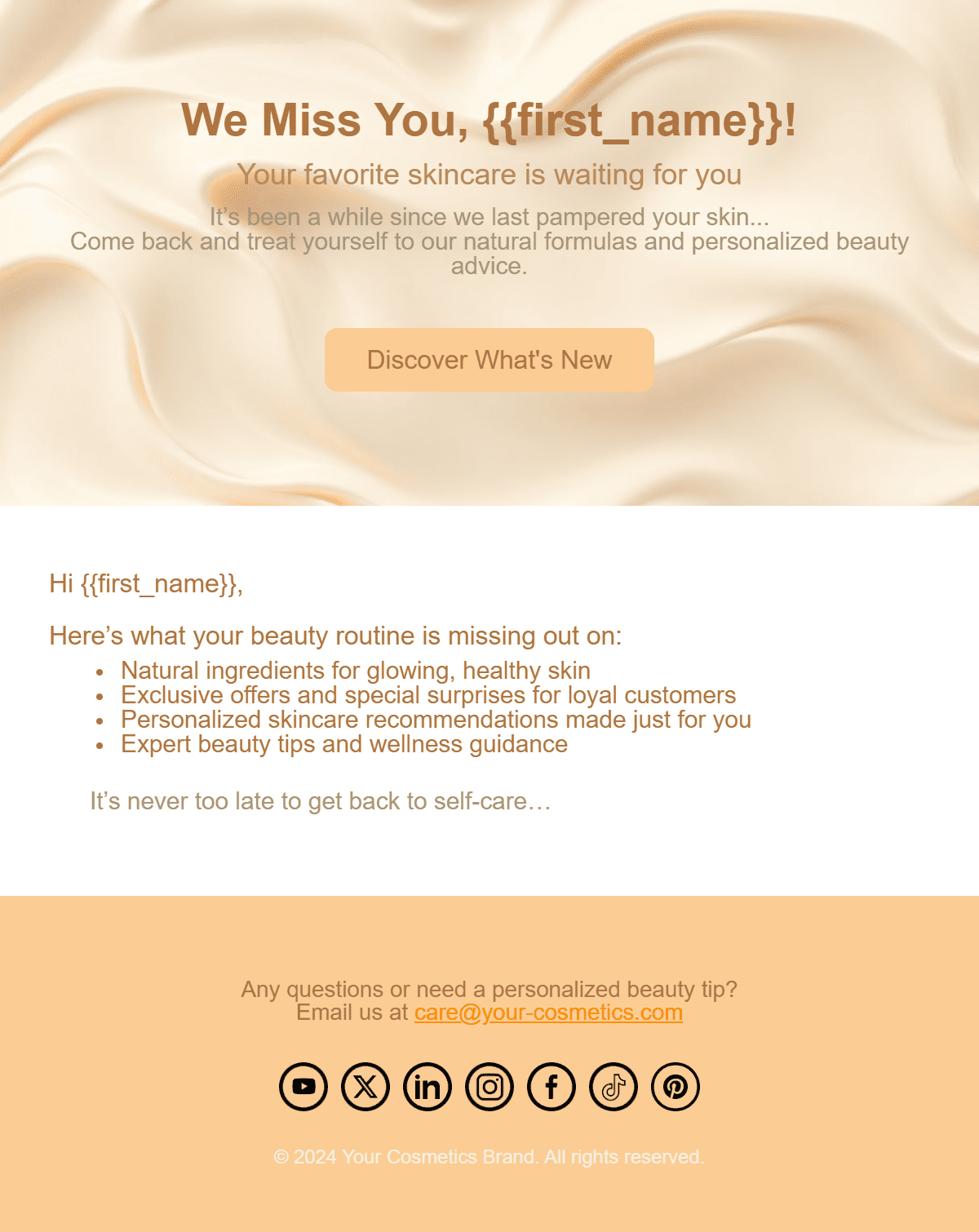
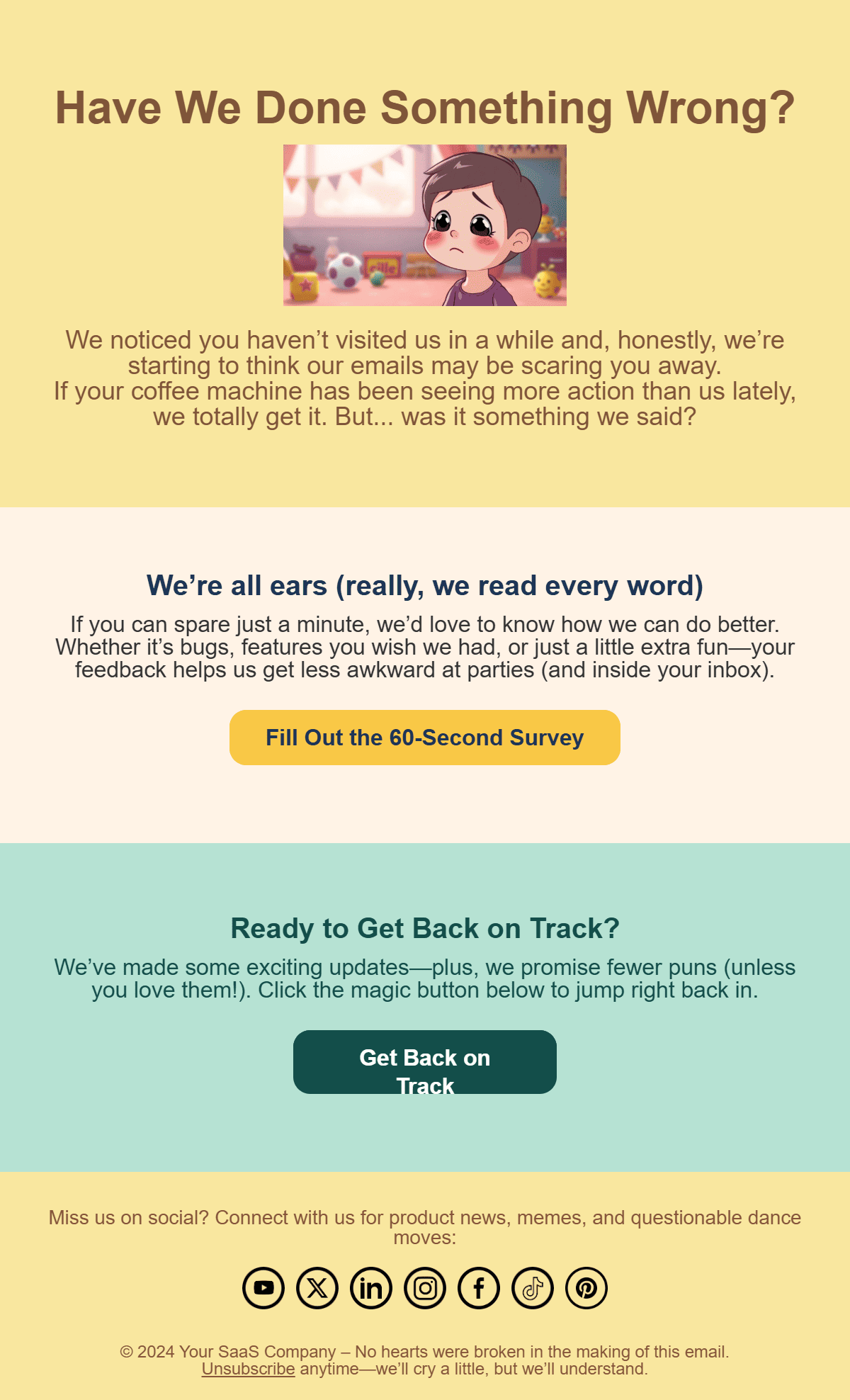
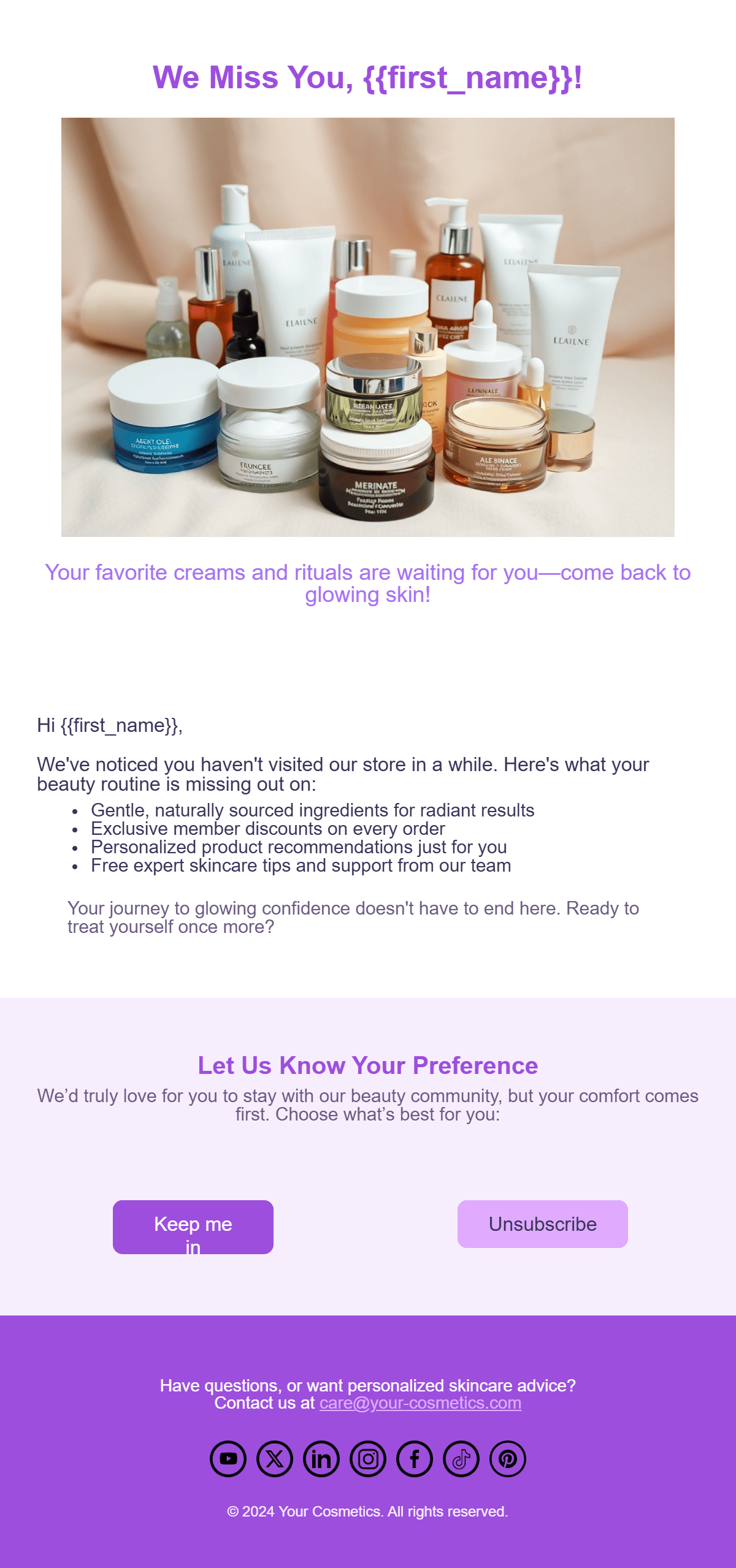
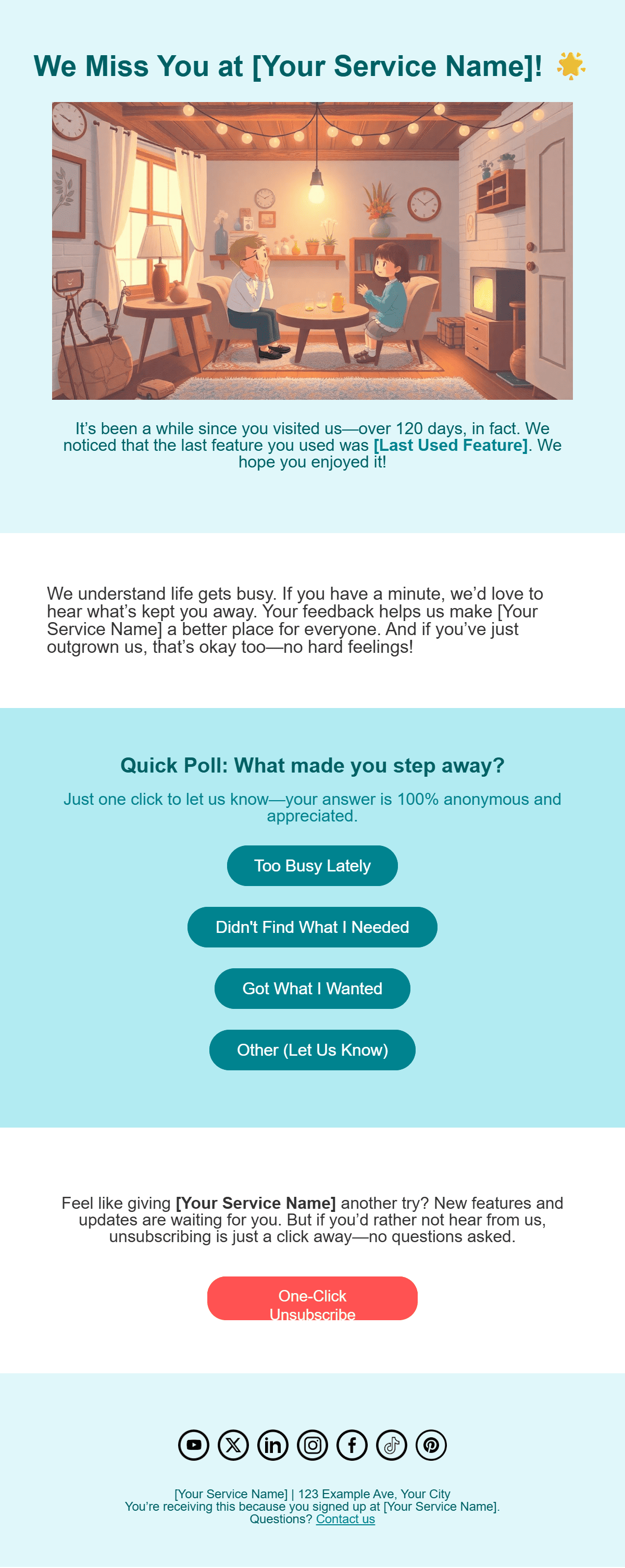
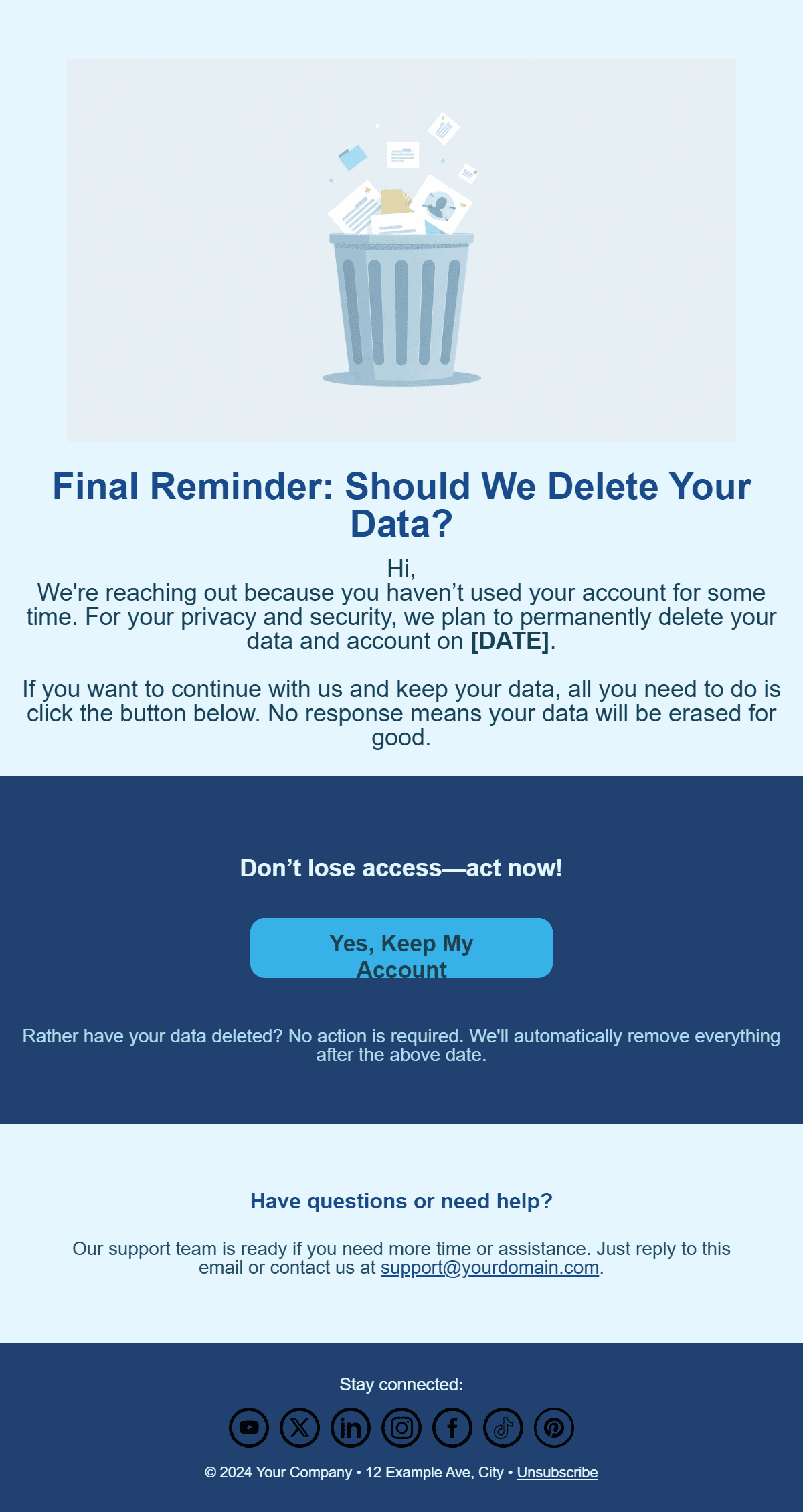





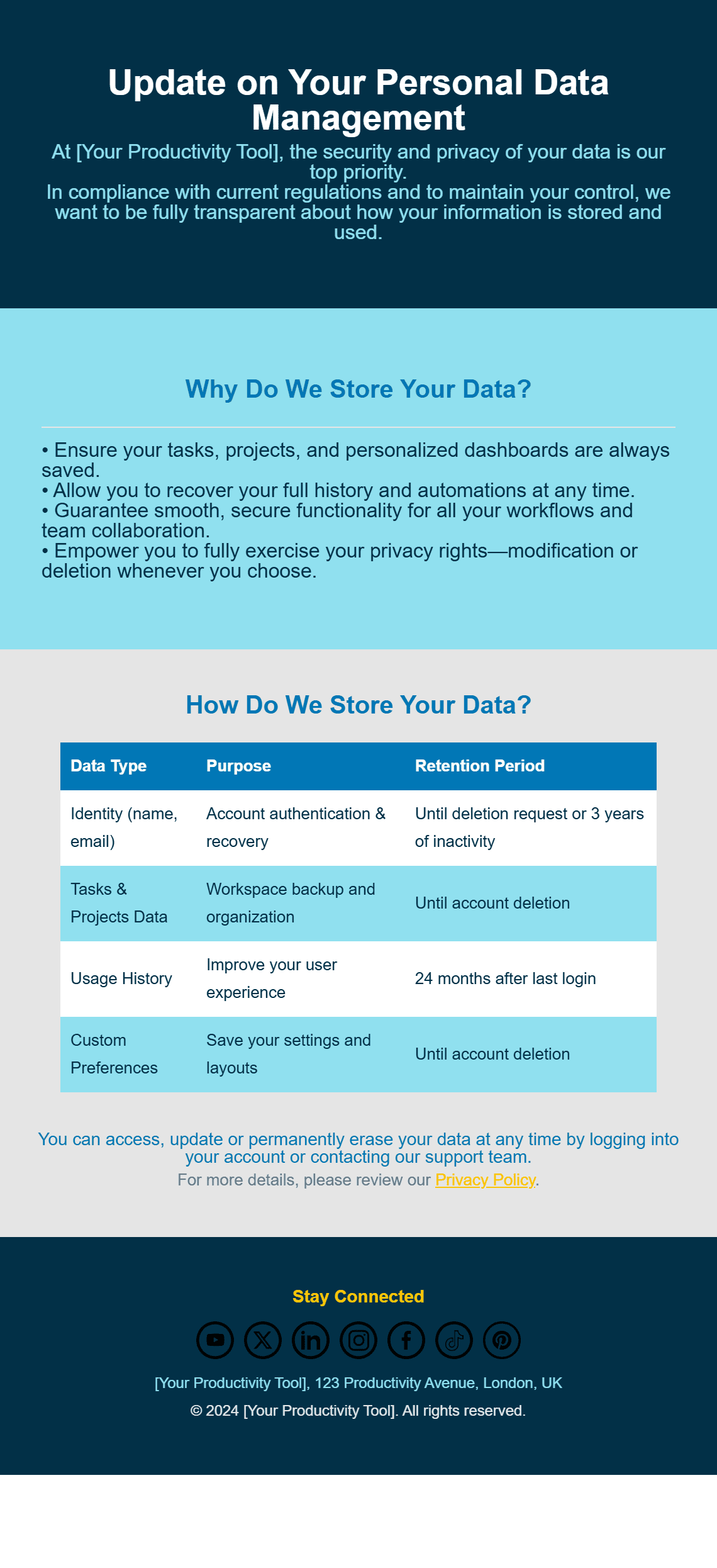
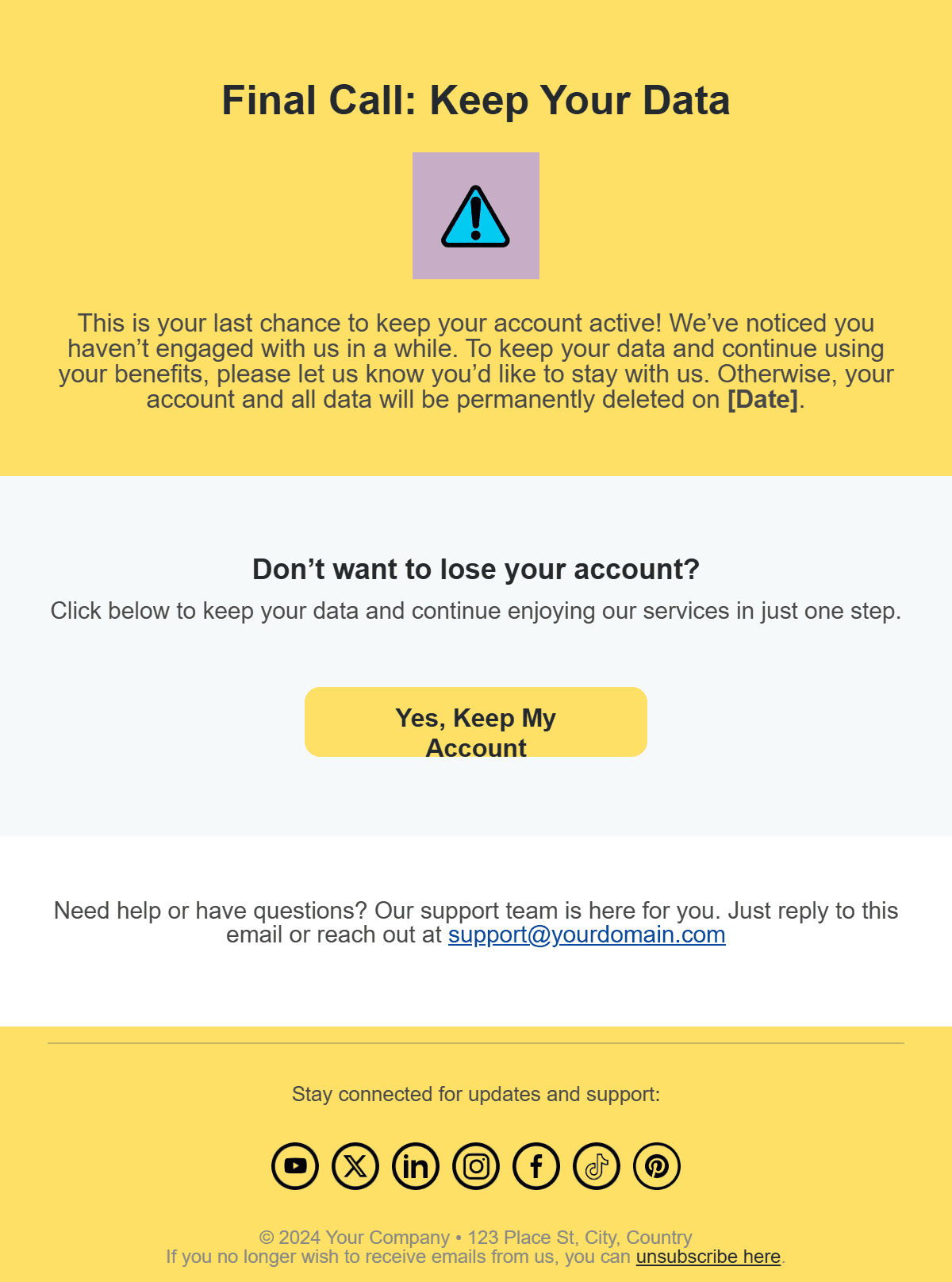
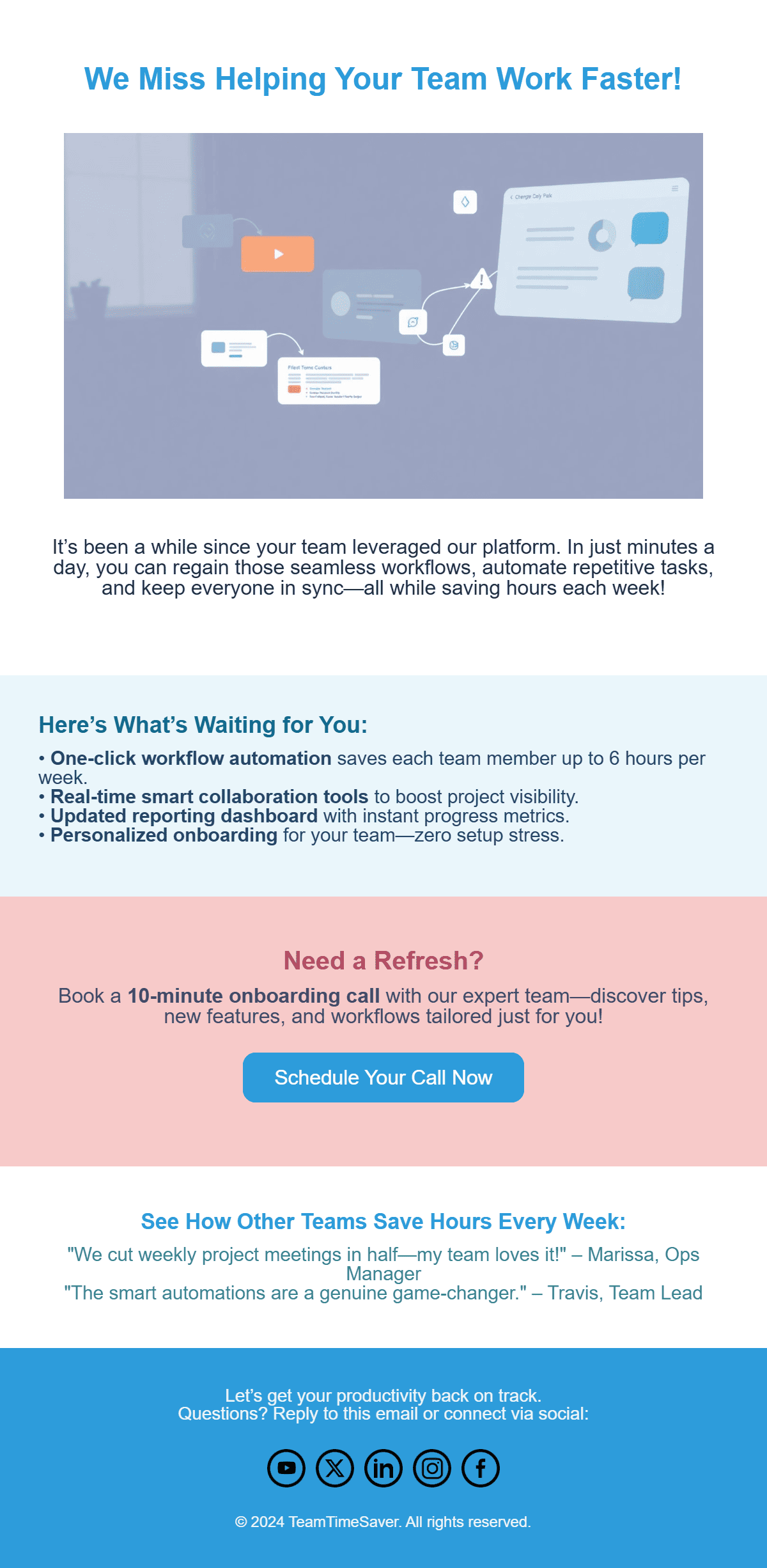
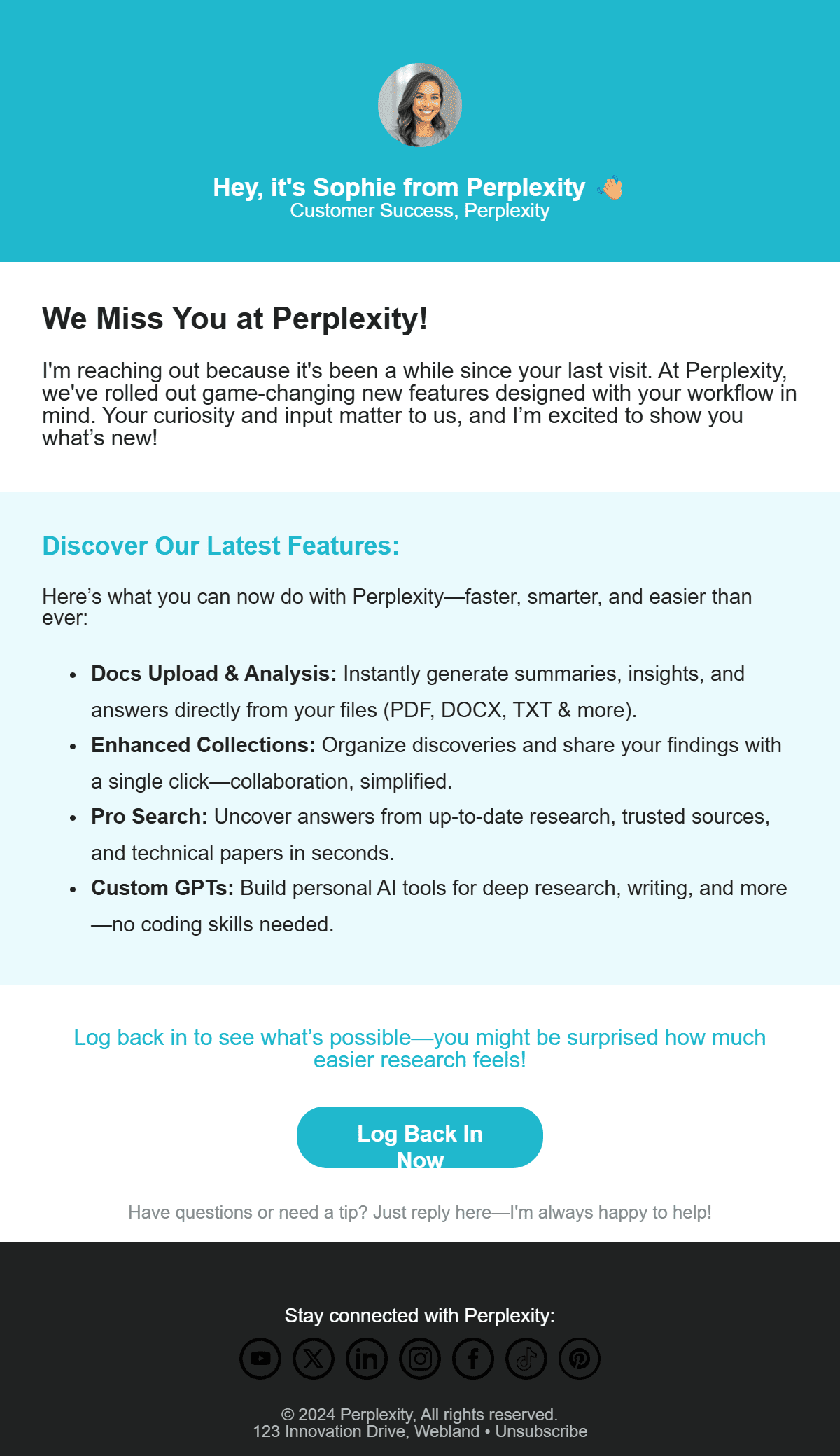
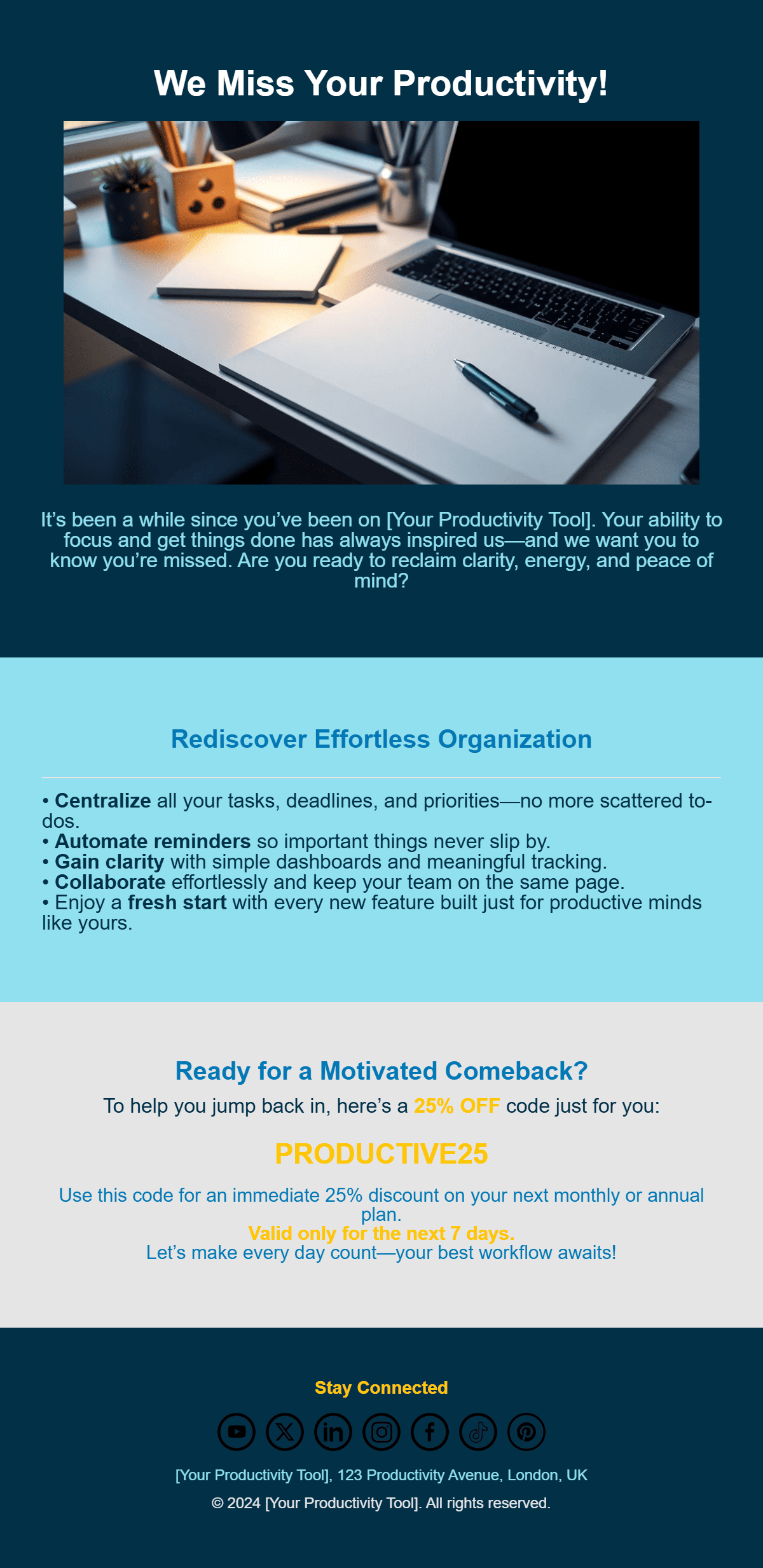





What is a re-engagement email?
A re-engagement (or win-back) email targets subscribers who haven’t opened or clicked in a defined period (usually 90–180 days). It delivers fresh value, surveys interest, and offers a clear choice: stay or unsubscribe.
Why re-engagement emails matter
Inbox placement:
Pruning unresponsive contacts can raise overall deliverability by 7 %.
Revenue boost:
45 % of reactivated SaaS users make a paid upgrade within 30 days (ProfitWell, 2025).
Data hygiene:
Regular win-backs keep list-growth costs 18 % lower year-over-year.
User insights:
Re-engagement surveys reveal why users disengaged, gold for product and marketing teams.
How to do it in 5 easy steps
- 1
Segment users with 0 opens/clicks in 120 days.
- 2
Populate dynamic first-name and last used feature.
- 3
Offer a concise value summary and optional discount.
- 4
Add two buttons: ‘I’m still in’ and ‘Unsubscribe’ (friction-less).
- 5
Send a reminder 48 h later only to non-openers.
Best Practices
1. Lead with a benefit refresh
Remind users of the core job-to-be-done your product solves.
What's good: ‘Remember how {{product}} saved you 3 h a week? Let’s do it again.’
Tip: Include a 40-second how-it-works GIF to jog memory.
2. Make opting out painless
Easy unsubscribes protect sender reputation and comply with GDPR.
What's good: Single-click unsubscribe or manage preferences.
Tip: Show a ‘Update topics’ option to keep partial interest users.
3. Use a friendly ‘from’ name
Faces humanise. Send from a real team member (e.g., ‘Emma at {{company}}’).
What's good: Personal from-lines lift opens by 11 %.
Tip: Add a small profile photo in the header for visual trust.
4. Include a one-question poll
Even if users opt out, you can still learn from them.
What's good: ‘Why did you stop using {{product}}?’ with 3 answer buttons.
Tip: Offer a bonus credit if they answer, low effort, high return.
10 High-Converting Welcome Email Subject Lines
- Still interested, {{first_name}}?
- We miss you , here's 25% off
- Should we keep sending emails?
- Just checking in (1-click)
- Take a quick survey, get 3 free credits
- Your account is on pause
- It’s been a while…
- Last chance to stay subscribed
- Final call: keep your data
- Help us improve – 2-minute poll
Frequently asked questions
When should I start a win-back?
For SaaS, 90 days of no product usage is a typical trigger. For newsletters, 120–150 days without opens works. Test based on your sales cycle.
How many emails?
Two to three. A primary nudge, one reminder, then a final ‘we’re removing you’ notice.
Do discounts cheapen my brand?
Not if positioned as a ‘welcome back’ perk. Alternatively, offer new features or content downloads instead of a discount.
Should I clean the list manually?
No need, use email engagement filters (open/click data) and automated suppressions to manage list hygiene safely.
Can I re-engage via SMS too?
Yes, especially if email bounces or hasn’t been opened in months. SMS open rates are ~90 %, but use it with caution and clear consent.
How do I measure success?
Track re-opens, click-throughs, and reactivations (logins or purchases). A 15–25 % win-back rate is a strong result.
